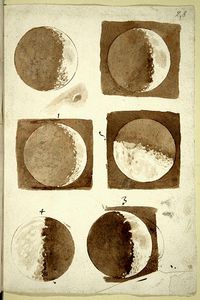"Everything contained in this little book is true, and written just like it was. The writing of it drew me from my strange torpor and I hope that in some measure it will fill the reader with vague and curious joy."
An abundant gathering of things, woolly and otherwise, shared generously by Patti Smith (born December 30, 1946) on the eve of her 45th birthday. Smith is a musician, artist, poet, and cultural figure almost as impossible to describe as this collection, Woolgathering.
Agatha Christie once compared the incisive daydreams of Miss Marple to a process of "gathering wool." What a tremendous phrase.
Smith means it figuratively and literally. She bundles thoughts until they become grand and inseparable. She creates something from nothing (the touch theme flows throughout).
I truly loved my family and our home, yet that spring I experienced a terrible and inexpressible melancholy, I would sit for hours, when my chores were done and the children at school, beneath the willows, lost in thought. That was the atmosphere of my life as I began to compose Woolgathering.
 “I awoke in the center of night. ‘In movement is blessing’ […] I felt about for my journal and laid there holding it, waiting for the moon to reappear.” - Patti Smith, Woolgathering. Illustration by Jackie Morris for The Lost Spells
“I awoke in the center of night. ‘In movement is blessing’ […] I felt about for my journal and laid there holding it, waiting for the moon to reappear.” - Patti Smith, Woolgathering. Illustration by Jackie Morris for The Lost SpellsSmith's somethings from nothing were gathered in truth and vulnerability, in deep self-examination, what Rilke called "going into self."
Through this aperture afforded by pain and doubt, Smith refocuses on the minute. Time passes in a fullness often unknown in books or life.
I had one of those headaches. It kept pounding and got into that crazy realm where the guillotine seems like a good idea. I groped about for the scissors and just like that cropped my hair. Brushing aside the discarded braids, I dragged over to the sink to cool my face and neck.
 "I stood still in the day’s exquisite early morning light," wrote Mary Oliver in her poem "Just a Minute."
"I stood still in the day’s exquisite early morning light," wrote Mary Oliver in her poem "Just a Minute."The pace of the words and actions and the nearsightedness of the object—"Relaxed, beneath the sky, contemplating this and that"—make Woolgathering calming and inviting. Calming even when Smith hits a discordant note: the unbeing of what we once wished for ourselves and the loss of non-materialized dreams.
I imagined a lot of things. That I would shine. That I'd be good. I'd dwell bareheaded on a summit turning a wheel that would turn the earth and undetected, amongst the clouds, I would have some influence, be of some avail.
These plucked and spun thoughts, strands, and tufts of wool harmonize. It's written expressionism, designed to evoke a feeling, not meaning. She writes of nighttime patience and wakefulness:
I awoke in the center of night. ‘In movement is blessing’ […] I felt about for my journal and laid there holding it, waiting for the moon to reappear.
 Galileo Galilei's Phases of the Moon shows earth-like land demonstrating the imperfection of these heavenly bodies. First published in 1610 in Sidereus Nuncius or The Starry Messenger.
Galileo Galilei's Phases of the Moon shows earth-like land demonstrating the imperfection of these heavenly bodies. First published in 1610 in Sidereus Nuncius or The Starry Messenger.Hermann Hesse believed "every book is an adventure of the mind and an invitation to experience the gifts of the imagination." And yet, we seldom find books that welcome us so warmly as this.
 Patti Smith in 2019.
Patti Smith in 2019.If you're looking to drift outside the bounds of something quickly thumbed and easily synopsized, pick up Woolgathering.
I dreamed of being a painter, but I let the image slide into a vat of pigment and pastry-foam while I bounded from the temple to the junkyard in pursuit of the word. A solitary shepherdess gathering bits of wool plucked by the hand of the wind from the belly of a lamb. A noun. A nun. A red. Or blue. Twittering threads caught in the thorns of an icy branch. Running in a place, a ghost in a vague expanse, I opened my arms to the sovereign trees and submitted to their pure, unholy embrace.
Harmonize further with an inner chord through Mark Strand's The Weather of Words, a book of poetry and poet clasped together. Finally, Leonard Cohen's last work, Book of Longing, is a collection of beautiful measure drawn from solitude and reflection.


